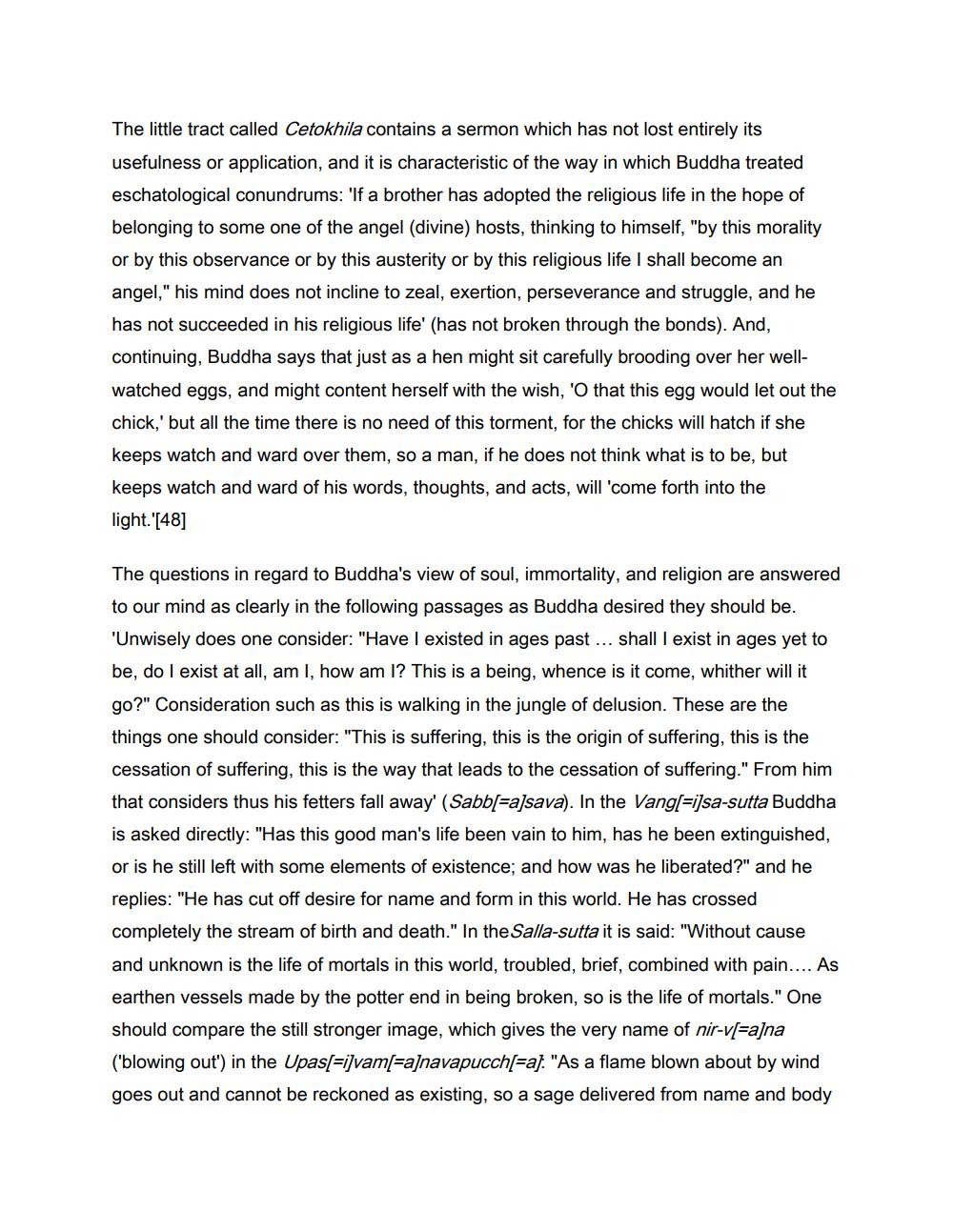________________
The little tract called Cetokhila contains a sermon which has not lost entirely its usefulness or application, and it is characteristic of the way in which Buddha treated eschatological conundrums: 'If a brother has adopted the religious life in the hope of belonging to some one of the angel (divine) hosts, thinking to himself, "by this morality or by this observance or by this austerity or by this religious life I shall become an angel," his mind does not incline to zeal, exertion, perseverance and struggle, and he has not succeeded in his religious life' (has not broken through the bonds). And, continuing, Buddha says that just as a hen might sit carefully brooding over her wellwatched eggs, and might content herself with the wish, 'O that this egg would let out the chick,' but all the time there is no need of this torment, for the chicks will hatch if she keeps watch and ward over them, so a man, if he does not think what is to be, but keeps watch and ward of his words, thoughts, and acts, will come forth into the light.'[48]
The questions in regard to Buddha's view of soul, immortality, and religion are answered to our mind as clearly in the following passages as Buddha desired they should be. "Unwisely does one consider: "Have I existed in ages past ... shall I exist in ages yet to be, do I exist at all, am I, how am I? This is a being, whence is it come, whither will it go?" Consideration such as this is walking in the jungle of delusion. These are the things one should consider: "This is suffering, this is the origin of suffering, this is the cessation of suffering, this is the way that leads to the cessation of suffering." From him that considers thus his fetters fall away' (Sabb[=a]sava). In the Vang(=issa-sutta Buddha is asked directly: "Has this good man's life been vain to him, has he been extinguished, or is he still left with some elements of existence; and how was he liberated?" and he replies: "He has cut off desire for name and form in this world. He has crossed completely the stream of birth and death." In the Salla-sutta it is said: "Without cause and unknown is the life of mortals in this world, troubled, brief, combined with pain.... As earthen vessels made by the potter end in being broken, so is the life of mortals." One should compare the still stronger image, which gives the very name of nir-v/=a]na ('blowing out') in the Upas[=isvam[=a]navapucch[=a). "As a flame blown about by wind goes out and cannot be reckoned as existing, so a sage delivered from name and body




